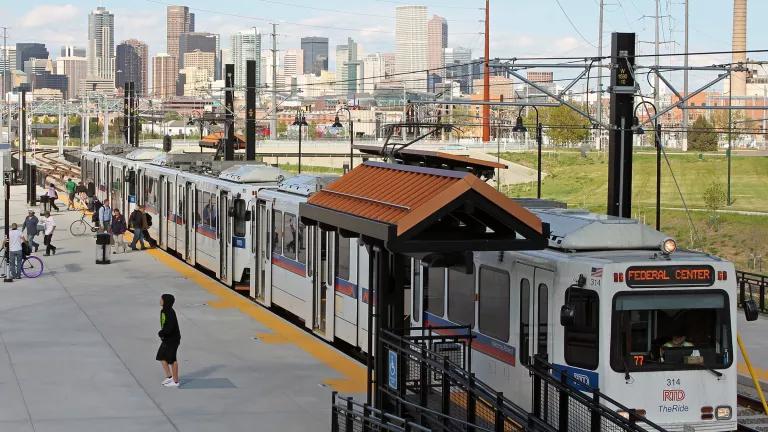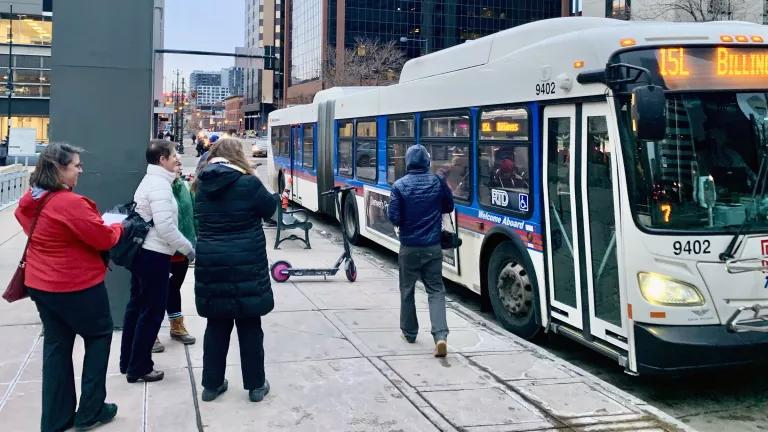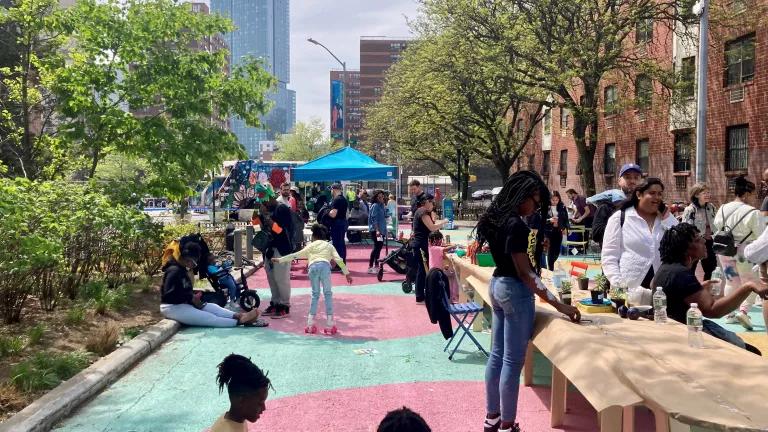Challenge Cities on Track to Beat Their Paris Climate Target
Together, the programs and policies supported by the Bloomberg American Cities Climate Challenge in the 25 participating cities are expected to reduce carbon emissions by at least 40 million metric tons by 2025. That impact is equivalent to taking 10 coal-fired power plants offline, or 8.5 million cars off the road for a year. And it means the participating cities as a portfolio are projected to reduce their collective climate emissions by at least 26-28 percent from 2005 levels, which is the goal set forth by the Paris Agreement.
This encouraging news comes while the world is at a critical juncture. Leading experts are sounding the alarm that the worst impacts of climate change—from hurricanes to drought, wildfires and extreme temperatures—could be much closer than expected.
The mayors of these cities are not waiting for the White House to act. Together, they are taking bold action to ensure we leave our children with a better, safer future.
This will be no small feat. Cities account for more than 70 percent of global greenhouse gas emissions and two-thirds of the world’s energy use. And the buildings and transportation sectors are responsible for over 90 percent of emissions in cities.
The American Cities Climate Challenge is a $70 million dollar two-year acceleration program designed to support ambitious U.S. cities’ efforts to tackle climate change and promote a sustainable future for their residents. The 25 cities selected will be tackling head on energy efficiency in buildings, renewable energy, transportation, and electric vehicles at the local level.
NRDC is proud to join with Bloomberg Philanthropies, Delivery Associates, as well as several other partners to support the winning cities’ efforts by providing the resources and technical support cities need to pursue high-impact emissions reductions programs and policies.
Additionally, as participating cities look to address many of the same challenges, they will have the opportunity to learn from each other in meaningful ways to accelerate progress. Indianapolis, Charlotte and San Antonio, for example, are seeking to reduce transportation pollution by creating new clean transit options. Orlando, Philadelphia and Albuquerque want to expand their municipal electric vehicle fleets and charging infrastructure. Albuquerque, Cincinnati, Indianapolis and St. Louis will work with the private sector to drive down energy use in big buildings. St. Petersburg, Washington, D.C., Charlotte and Columbus plan to develop new financing programs for energy efficiency and renewable energy projects.
Another unique benefit of the Challenge is that cities will also have the opportunity to learn from peers that have taken on an initiative in the past. For instance, Portland, Oregon, has a long history of promoting biking and building transit choices, and as a result Portlanders drive about 20 percent fewer miles per year than the average person in the U.S. San Jose, Honolulu, Minneapolis, Pittsburgh, Boston, Seattle and Chicago all plan to work on expanding infrastructure to make biking safe and convenient in their cities and will be able to learn from Portland’s prior efforts.
These cities are leading the way forward in the fight against climate change, and they can have a powerful impact. We look forward to working with the ACCC cities over the next two years to help them meet the goals of the Paris Agreement, and ensure their visions for more sustainable, resilient and livable communities become reality.


